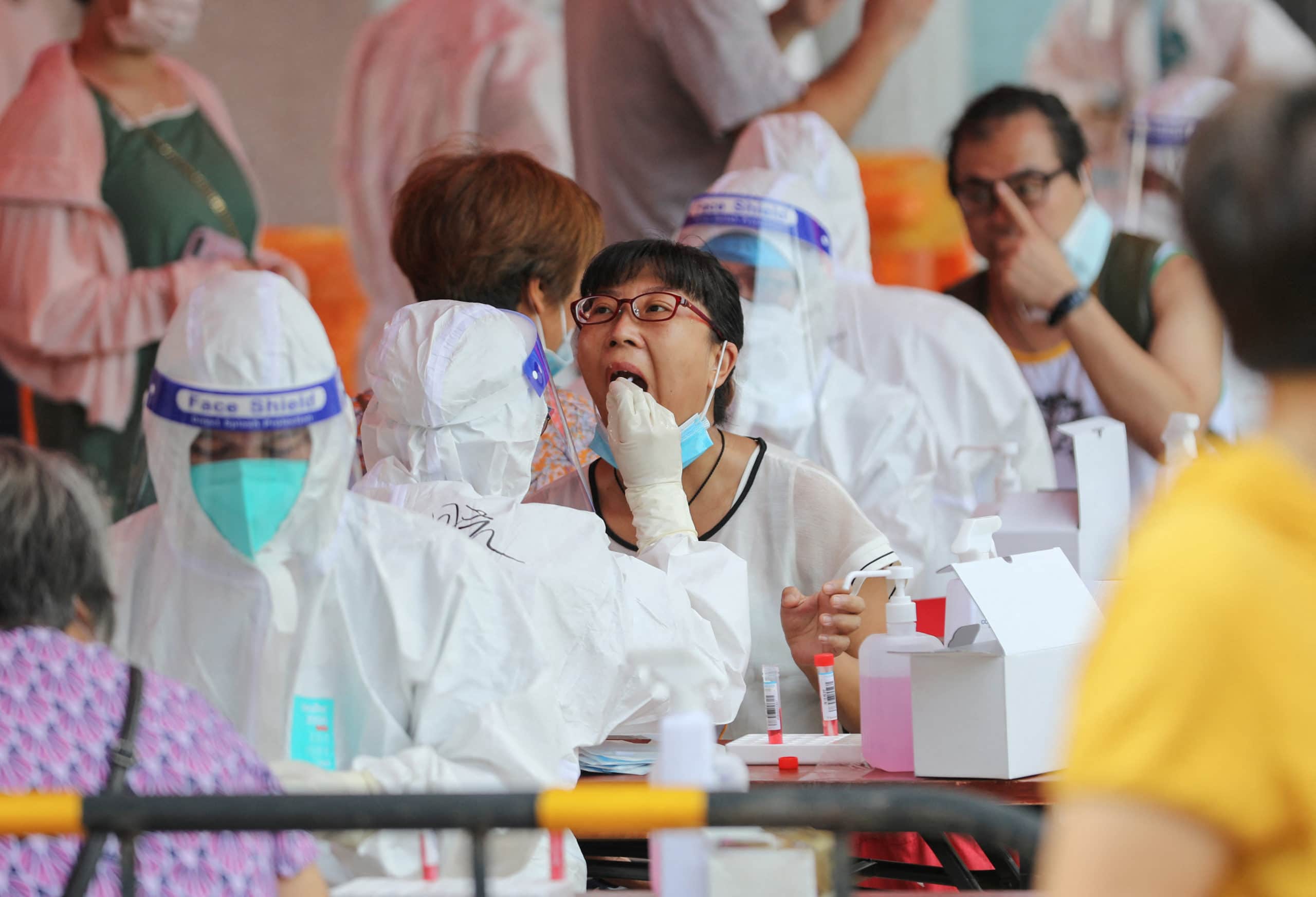TOPLINE
China announced broad changes to its zero-Covid policy on Wednesday, a major policy shift and a significant step towards reopening as pressure on officials to reassess the increasingly unsustainable policy mounted amid widespread public discontent and ongoing economic harm.
KEY FACTS
China announced wide-ranging relaxations to its zero-Covid strategy—more fully, “dynamic zero Covid,” Beijing’s signature pandemic policy centered around eliminating the virus rather than just keeping it at bay—including allowing home isolation for mild or asymptomatic cases and easing testing requirements.
The changes suggest Beijing, which has deployed strict lockdowns, isolation (possibly in government facilities) and mass testing in areas where cases have been reported, is stepping away from zero-Covid and starting to align more with management-focused policies used in most other parts of the world.
The approach has been so strict that entire cities housing millions of people have been locked down over a few Covid cases, with reports of shoppers and workers fleeing stores and factories to avoid being locked inside.
Lockdowns are typically much stricter than what most of the world is familiar with and some zones are guarded and drones are used to ensure compliance.
Loading...
There are numerous reports of residents struggling to get food, medical care and other essentials during lockdowns, as well as being prevented from leaving buildings during earthquakes and other disasters.
NEWS PEG
Protests erupted in cities across China last week following the death of 10 people in an apartment fire in the western city of Urumqi. Authorities deny the strict lockdown in place was a factor in the deaths, which many think prevented people escaping and help from arriving. Covid cases also reached a record high. Though far from the first Covid protests in China during the pandemic, the protests presented a particular challenge for President Xi Jinping, who staked a lot of political capital on the policy and continued to defend it as sound. Zero-Covid was the reason China had not suffered the same fate as many other countries during the pandemic, officials reasoned. In a rare and unusual show of public defiance, demonstrators have openly criticized Xi over the policy and called for him to step down.
CRUCIAL QUOTE
Xi has repeatedly defended China’s zero-Covid policy but had not offered or suggested a way out of the pandemic. In May, when he once again reaffirmed Beijing’s commitment to zero-Covid, Xi told officials to “unswervingly adhere to the general policy of dynamic zero-Covid.” China’s lockdowns have been “scientific and effective,” Xi said.
WHAT WE DON’T KNOW
There is no obvious way out of zero-Covid for China. The only natural end point for zero-Covid is the eradication of the virus that causes Covid-19. Most experts now believe this is a dim and distant prospect and, if it is possible, it will not happen in the near future. Beijing’s difficulties stem from the fact it is stuck using strict lockdowns—which are intended as temporary restrictions to buy time to implement more durable strategies like vaccination—because, unlike other countries, it has not used that time to build up immunity in the population. In the three years under the policy, China failed to vaccinate its most vulnerable people, notably the elderly, failed to improve its healthcare system to cope with outbreaks and steadfastly refused offers of effective western mRNA vaccines, touting the dubious efficacy of its homegrown shots. Health experts told Forbes a departure from the policy would likely result in large outbreaks, the scale and nature of which is difficult to predict and would depend on local circumstances and behavioral changes. The return of strict restrictions in the future cannot be ruled out completely, they added.
CONTRA
Given its poor vaccination rates, lackluster shots, dearth of natural immunity from previous infections and the spread of highly infectious variants like omicron, any departure from zero-Covid could be catastrophic for China. Though unsustainable, Beijing’s strict and draconian measures have undoubtedly saved lives during the pandemic. China, which has been questioned on the accuracy of its figures, boasts one of the lowest Covid death rates per capita. With more than 1.4 billion people, official figures report around 5,200 Covid deaths in China since the pandemic started. Around the same number have died in Idaho. Case rates per capita are also among the lowest in the world. Experts warn the country faces a “tsunami” of cases that could overwhelm hospitals and kill more than 1 million people if it changes course. Health analytics firm Airfinity predicts as many as 2.1 million will die if the policy is lifted and said improving vaccine coverage among its sizable elderly community will be key prior to opening up.
KEY BACKGROUND
China’s adherence to zero-Covid is not just a domestic issue and Beijing’s approach can be felt far beyond the country’s borders. After the U.S., China is the world’s largest economy by a significant margin—its GDP is more than four times that of the third largest economy, Japan, according to the International Monetary Fund—and it is the world’s leading exporter. The shutdown of factories and other economic hubs in China are of global consequence and the policy has caused supply chain issues and shortages around the world. The continued disruption threatens global economic recovery as well and Beijing’s strategy has prompted global economic and business leaders, including Treasury Secretary Janet Yellen and the IMF, to urge Beijing to alter course. Public health leaders, notably World Health Organization chief Dr. Tedros Adhanom Ghebreyesus, have also criticized the policy as unsustainable and ineffective.
By Robert Hart, Forbes Staff
Loading...
